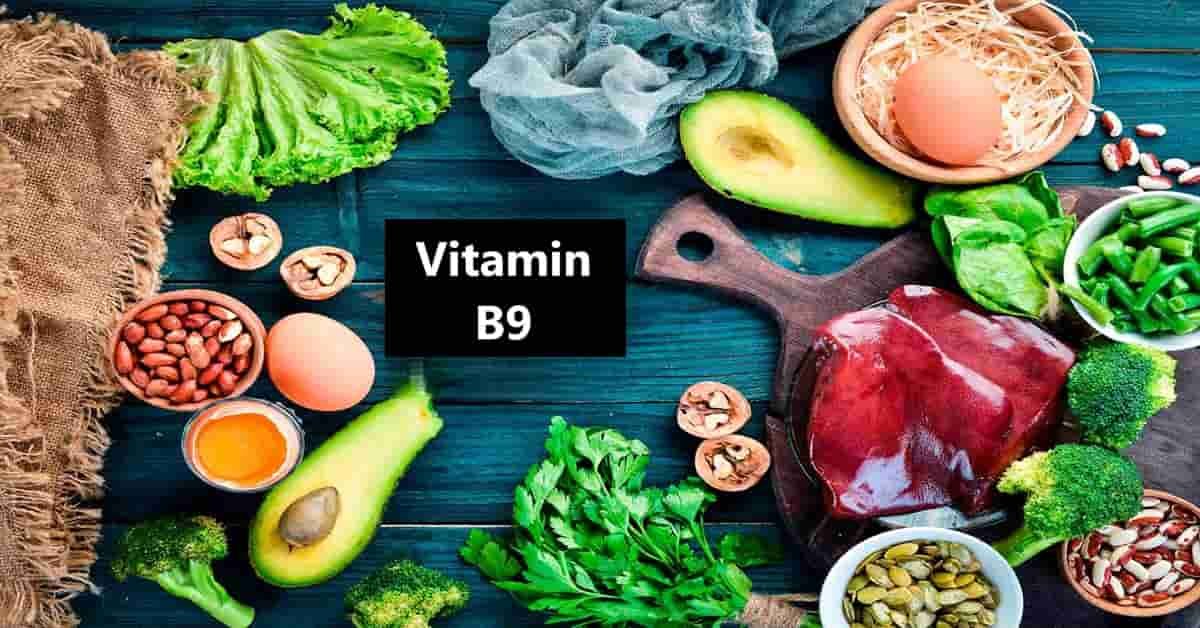Vitamin B9, also known as folate or folic acid (the synthetic form found in supplements and fortified foods), is a water-soluble vitamin that plays a critical role in several bodily functions. It is essential for the synthesis and repair of DNA, making it particularly important during periods of rapid growth, such as during pregnancy and infancy. Here’s an in-depth look at the numerous benefits of vitamin B9:
1. Supports Healthy Cell Division
- DNA Synthesis: Vitamin B9 is vital for DNA synthesis and repair. It helps in the production of nucleotides, the building blocks of DNA, which is essential for cell division and growth. This function is particularly critical for rapidly dividing cells, such as those in embryos and newborns.
2. Promotes Healthy Fetal Development
- Pregnancy Benefits: Adequate intake of folate before and during pregnancy is crucial to prevent congenital birth defects, particularly neural tube defects (NTDs) such as spina bifida. It supports the development of the neural tube, which eventually becomes the baby’s brain and spinal cord.
3. Supports Cardiovascular Health
- Homocysteine Regulation: Folate plays a role in lowering homocysteine levels, an amino acid associated with an increased risk of heart disease. Maintaining adequate folate levels can help reduce the risk of cardiovascular diseases by promoting vascular health.
4. Reduces Risk of Certain Cancers
- Cancer Prevention: Some studies have suggested that adequate folate intake is linked to a reduced risk of certain cancers, particularly colorectal cancer. Folate may help in DNA repair processes, thus protecting cells from mutations that can lead to cancer.
5. Mental Health and Cognitive Function
- Mood Regulation: Folate is involved in the synthesis of neurotransmitters such as serotonin and dopamine, which are essential for mood regulation and cognitive function. Low levels of folate have been associated with an increased risk of depression and cognitive decline.
6. Supports Immune System Function
- Cellular Health: Folate is essential for the production of white blood cells, which are vital for a healthy immune response. Adequate folate levels can help enhance overall immune function and improve the body’s ability to fight infections.
7. Prevention of Anemia
- Red Blood Cell Formation: Folate is necessary for the production of healthy red blood cells. Its deficiency can lead to a type of macrocytic anemia, where red blood cells are larger than normal and cannot function efficiently, leading to fatigue and weakness.
8. Skin and Hair Health
- Cell Renewal: By supporting cell division and growth, folate contributes to healthy skin renewal and can mitigate issues like dry skin, hair loss, and other skin problems.
List of Foods That Contain Vitamin B9
Folate is found naturally in a variety of foods, making it possible to get sufficient amounts through a balanced diet. Here’s a list of foods rich in vitamin B9:
1. Leafy Greens
- Spinach: A top source of folate, providing high levels per serving.
- Kale: Another leafy green rich in folate and other nutrients.
- Collard Greens: Provide a significant amount of vitamin B9.
2. Legumes
- Lentils: Among the best sources of folate; they’re also high in protein and fiber.
- Chickpeas: Contain a good amount of folate and are versatile in cooking.
- Black Beans: Offer high folate content along with other essential nutrients.
3. Fruits
- Oranges: Citrus fruits are a fresh source of folate.
- Avocado: Not only rich in healthy fats, but also offers a decent amount of folate.
- Bananas: Provide a small but beneficial amount of folate.
4. Nuts and Seeds
- Sunflower Seeds: A good source of folate and healthy fats.
- Peanuts: Provide folate along with protein and healthy fats.
5. Whole Grains
- Quinoa: A complete protein that also contains a good amount of folate.
- Brown Rice: Offers some folate along with other nutrients.
- Fortified Cereals: Many breakfast cereals are fortified with folic acid.
6. Animal Products
- Liver: Particularly beef liver, which is exceedingly high in folate.
- Eggs: Contain moderate amounts of folate, especially in the yolk.
- Milk and Dairy Products: Provide some folate along with other essential nutrients.
7. Vegetables
- Brussels Sprouts: High in folate, fiber, and other vitamins.
- Asparagus: A great source of folate, especially when cooked.
FAQs About Vitamin B9
1. What is the recommended daily intake of vitamin B9?
- The recommended dietary allowance (RDA) for folate is about 400 micrograms per day for adults. Pregnant women should aim for 600 micrograms and breastfeeding women require about 500 micrograms per day.
2. What are the symptoms of vitamin B9 deficiency?
- Symptoms of folate deficiency may include fatigue, weakness, irritability, difficulty concentrating, glossitis (inflammation of the tongue), and in severe cases, it can lead to macrocytic anemia. During pregnancy, deficiency can increase the risk of birth defects.
3. Can I get enough vitamin B9 from my diet?
- Yes, by consuming a varied diet rich in fruits, vegetables, legumes, and whole grains, most individuals can meet their folate needs without requiring supplementation.
4. Is folic acid supplementation necessary?
- While many people can get sufficient folate through their diet, supplementation is particularly important for women of childbearing age to reduce the risk of neural tube defects during pregnancy. Healthcare providers often recommend folic acid supplementation during pregnancy.
5. Are there any side effects from taking folic acid supplements?
- Folic acid is generally considered safe when taken at recommended doses. However, excessive intake of folic acid from supplements may mask symptoms of vitamin B12 deficiency, potentially leading to neurological damage. It’s important to manage intake and consult a healthcare professional.
6. How does vitamin B9 support heart health?
- By helping to lower homocysteine levels in the blood, folate can reduce the risk of cardiovascular diseases. Maintaining adequate levels of vitamin B9 can promote cardiovascular health and reduce the incidence of heart-related conditions.
7. Can vitamin B9 help improve mood?
- Yes, adequate folate levels are associated with mental well-being. Low levels of folate have been linked to depression, while some research suggests that folate supplementation may enhance the efficacy of antidepressants in some individuals.
8. What are the best dietary sources of vitamin B9?
- The best sources of folate include leafy greens (such as spinach and kale), legumes (like lentils and chickpeas), citrus fruits (such as oranges), and fortified foods. Including a variety of these foods in your diet can help ensure adequate folate intake.


